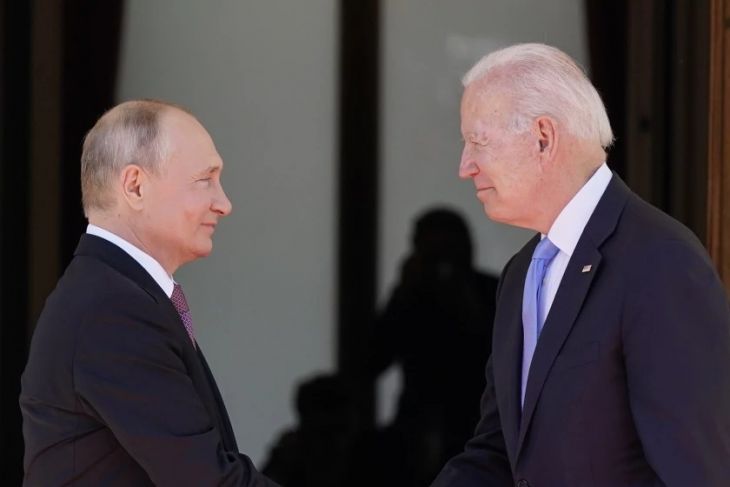“This man (Putin) cannot remain in power”. President Joe Biden, March 26th speech in Poland.
Powerful words from President Biden addressing thousands of Poles and the global community on his last day in Europe.
During his visit, President Biden has upped the language he has used to describe Putin – as a butcher, a thug, a dictator, and a liar.
But what happens if Putin does indeed “go”?
A look at history leaves me in doubt that a change in leadership can change Russia in a meaningful way.
For centuries, Russia was repressive state where few freedoms existed. First the Tsars, with the Orthodox Church, and then the communists ruled with an iron fist. This is the same strategy that Putin has adopted over twenty years to consolidate and maintain absolute control of the Russian polity.
So, the words the President uttered towards the end of his speech leave me wondering.
Who could replace Putin should regime change take place?
A review of history shows that those who would try to separate criticism of Putin and criticism of the Russian people are mistaken, in my view.
For centuries, Russians have tolerated totalitarian leadership structures in exchange for a what its leaders described as a national dream of predictability.
States like Hungary, Venezuela, Nicaragua, and a number of African countries, not to mention the countries of the Arab Spring all went through periods of representative democracy only to fail. Attempts to install democracies in countries with no history of democracy sometimes fail, and I believe that they would in Russia after Putin.
Indeed, the Russian revolution of 1917 did not lead to liberal democracy. It led to seven decades of totalitarian far left communist rule. Russians replaced the yoke of the tsars with the yoke of the commissars and continued afterwards with a Chekist police state.
The fall of the Soviet Union did not lead to democracy either. It led to the chaos of the Yeltsin years in which the commissars were replaced in 2000 by an oligarchy of kleptocrats composed of active and former KGB officers with Putin in absolute control. Putin has cultivated the support of the oligarchs whom he helped to further their financial empires. His creative use of military action against the Chechen minority sealed his reputation as a tough leader who would bring order to Russia and seek to restore its previous greatness. This has been his goal for twenty-two years, and it remains so, despite the performance of his troops in Ukraine.
The question is not whether democracy can come to Russia, but can Russians and their institutions transition quickly enough to avoid the perceived chaos of a poorly executed transition to democracy? This despite their inability, so far, to adapt themselves to a political and social system that has been alien to them throughout their history. Can Russia live without Putin’s imperialistic aspirations, or the Soviet ones before? Can a Russia without Putin become a responsible member of the international community that can be trusted to keep its word and respect international law? It isn’t now, and I don’t believe that it will be for some time to come.
So yes, I agree, President Biden is right in saying that Putin must go.
But the important questions we must ask is who and what will replace him and the system in place and will this result in a Russia that is respectful of human rights and international law?
Keep reading: Keeping Up Appearances
Edición: Mirna Abreu
La alcaldesa declaró que mientras las mujeres vivan violencia queda trabajo pendiente
Astrid Sánchez
Delcy Rodríguez calificó la relación económica entre ambos países como un ''ganar ganar''
Ap
Civiles y autoridades federales se sumaron a la acción de limpieza en la Reserva de la Biosfera
La Jornada Maya
Irak señaló que los integrantes de su selección enfrentan dificultades para tramitar permisos a causa del conflicto entre Irán y EU
La Jornada
